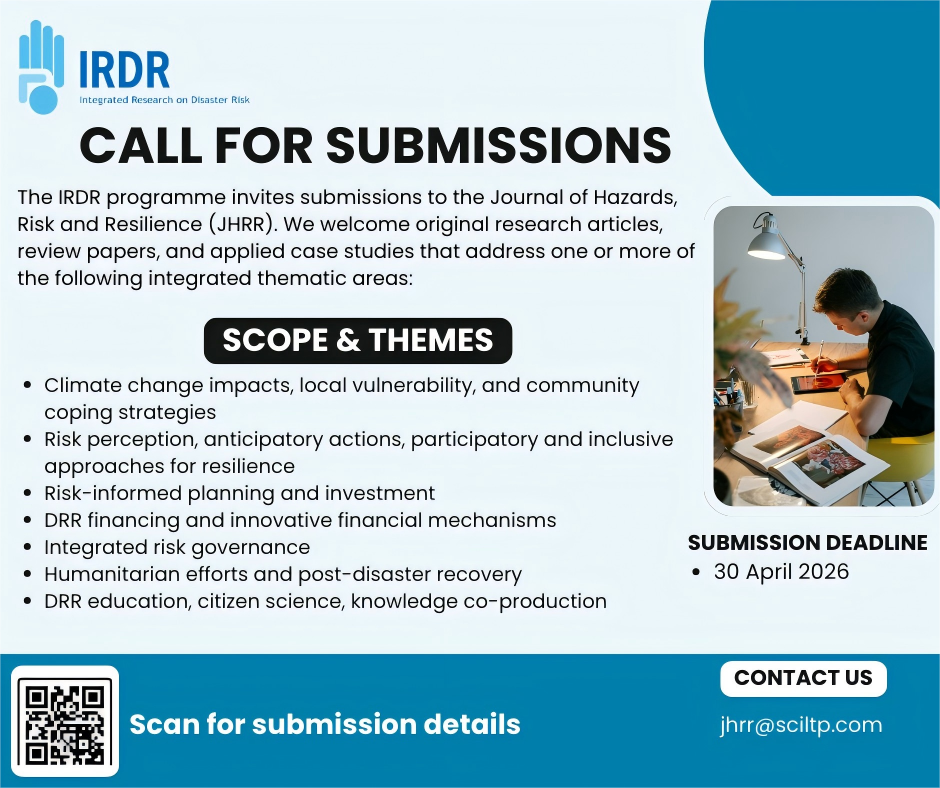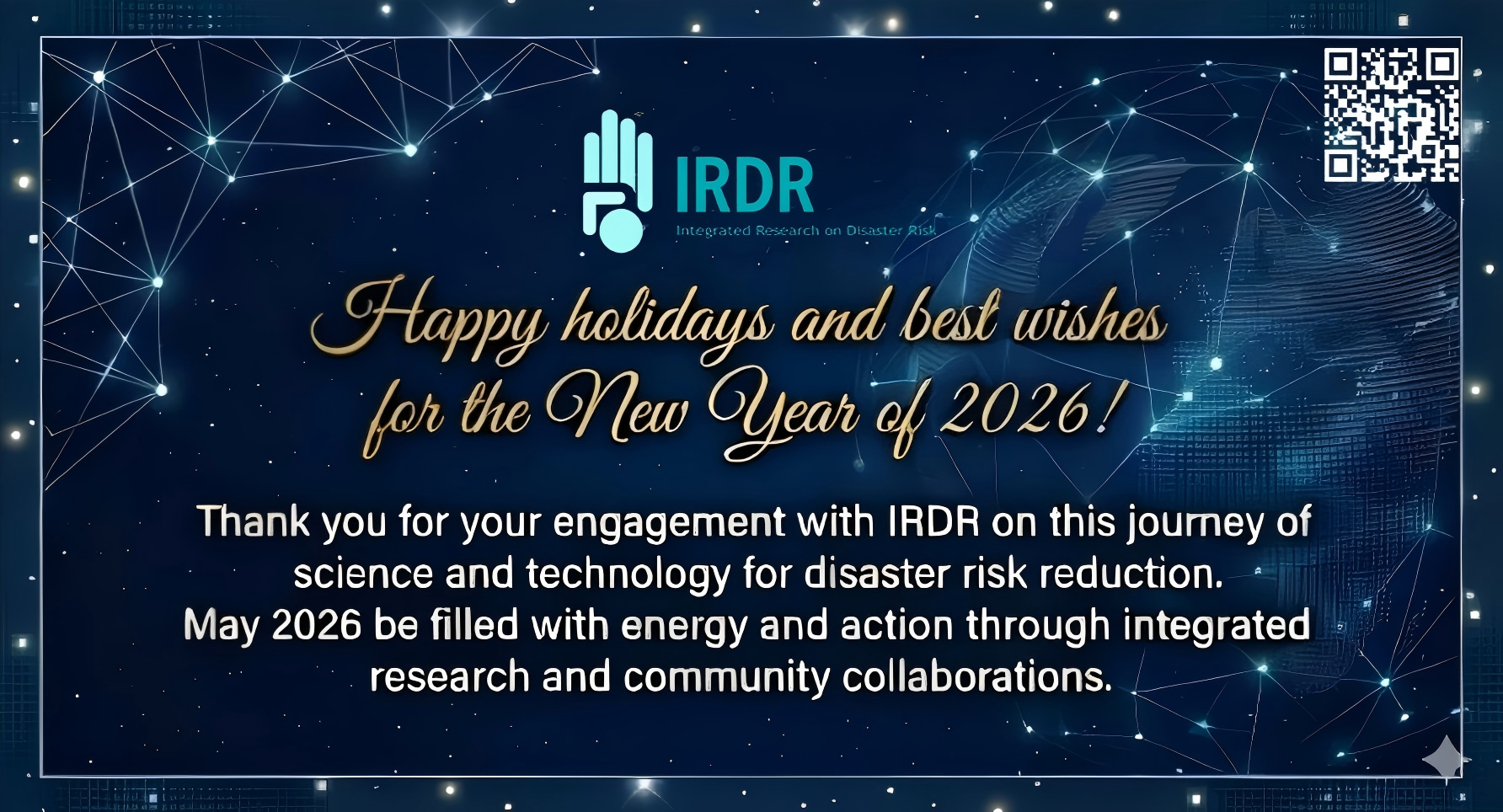After Washington DC (USA) in 2010 and Cape Town (South Africa) in 2012, it was London’s turn to host the 2014 “Understanding Risk” (UR) Conference and Forum. UR 2014 saw 800 registrations of experts and practitioners in various areas of disaster risk assessment. The conference and forum are prime events for knowledge sharing, community building and for developing new and innovative collaborations in risk assessment.

Participants included a wide range of expertise, including delegates from government agencies and multilateral and non-governmental organizations, leaders from the private sector and from academia, as well as from community-based organisations and civil society.
The IRDR Science Committee members and project leaders and participants presented some of their recent research in a number of sessions; they included Omar Dario Cardona (Colombia; session on UNISDR Global Risk Assessment) and Susan Cutter (USA; session “Beyond physical risk – looking through a socio-economic lens”). Incoming Executive Director R. Klein discussed, inter alia, with ICSU member Royal Society of London in a follow-up given to their session on how best to link their recent science and policy initiative in the field of sustainable development with IRDR programme initiatives in Asia.
During an invitation-only session organized by the Willis Group, speakers such as Jeffrey Sachs (Earth Institute, Columbia Univ.), Rachel Kyte (VP World Bank), and Rebecca Moore of Google emphasized the need to see research and action in the field of disaster risk reduction in the context of sustainable development and climate change adaptation, and the related intergovernmental frameworks that will be revised in the course of 2015.
A hallmark of the conference was the strong participation of corporate partners. IRDR’s DATA project is a key arena for close cooperation between academia, data experts, the insurance industries and community representatives; efforts along the lines explored also by DATA and aimed at reaching better compatibility of practices and standards in disaster loss data, were highlighted as being particularly useful for a more comprehensive incorporation of disaster risk into business plans in the corporate sector.
UR 2014 also saw a photo competition; the winning entry can be seen here: https://www.understandrisk.org/






